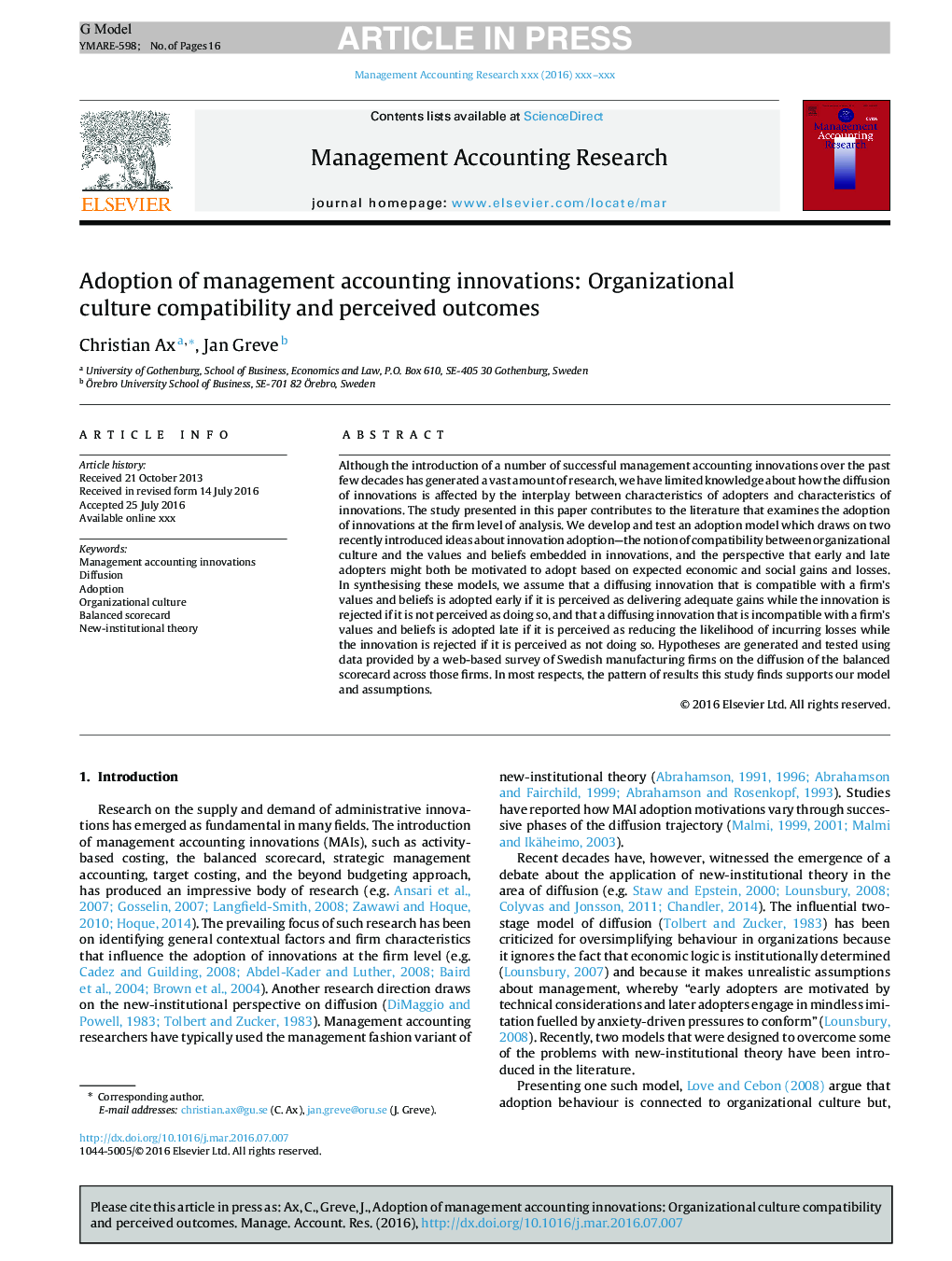| Article ID | Journal | Published Year | Pages | File Type |
|---|---|---|---|---|
| 5107224 | Management Accounting Research | 2017 | 16 Pages |
Abstract
Although the introduction of a number of successful management accounting innovations over the past few decades has generated a vast amount of research, we have limited knowledge about how the diffusion of innovations is affected by the interplay between characteristics of adopters and characteristics of innovations. The study presented in this paper contributes to the literature that examines the adoption of innovations at the firm level of analysis. We develop and test an adoption model which draws on two recently introduced ideas about innovation adoption-the notion of compatibility between organizational culture and the values and beliefs embedded in innovations, and the perspective that early and late adopters might both be motivated to adopt based on expected economic and social gains and losses. In synthesising these models, we assume that a diffusing innovation that is compatible with a firm's values and beliefs is adopted early if it is perceived as delivering adequate gains while the innovation is rejected if it is not perceived as doing so, and that a diffusing innovation that is incompatible with a firm's values and beliefs is adopted late if it is perceived as reducing the likelihood of incurring losses while the innovation is rejected if it is perceived as not doing so. Hypotheses are generated and tested using data provided by a web-based survey of Swedish manufacturing firms on the diffusion of the balanced scorecard across those firms. In most respects, the pattern of results this study finds supports our model and assumptions.
Related Topics
Social Sciences and Humanities
Business, Management and Accounting
Accounting
Authors
Christian Ax, Jan Greve,
